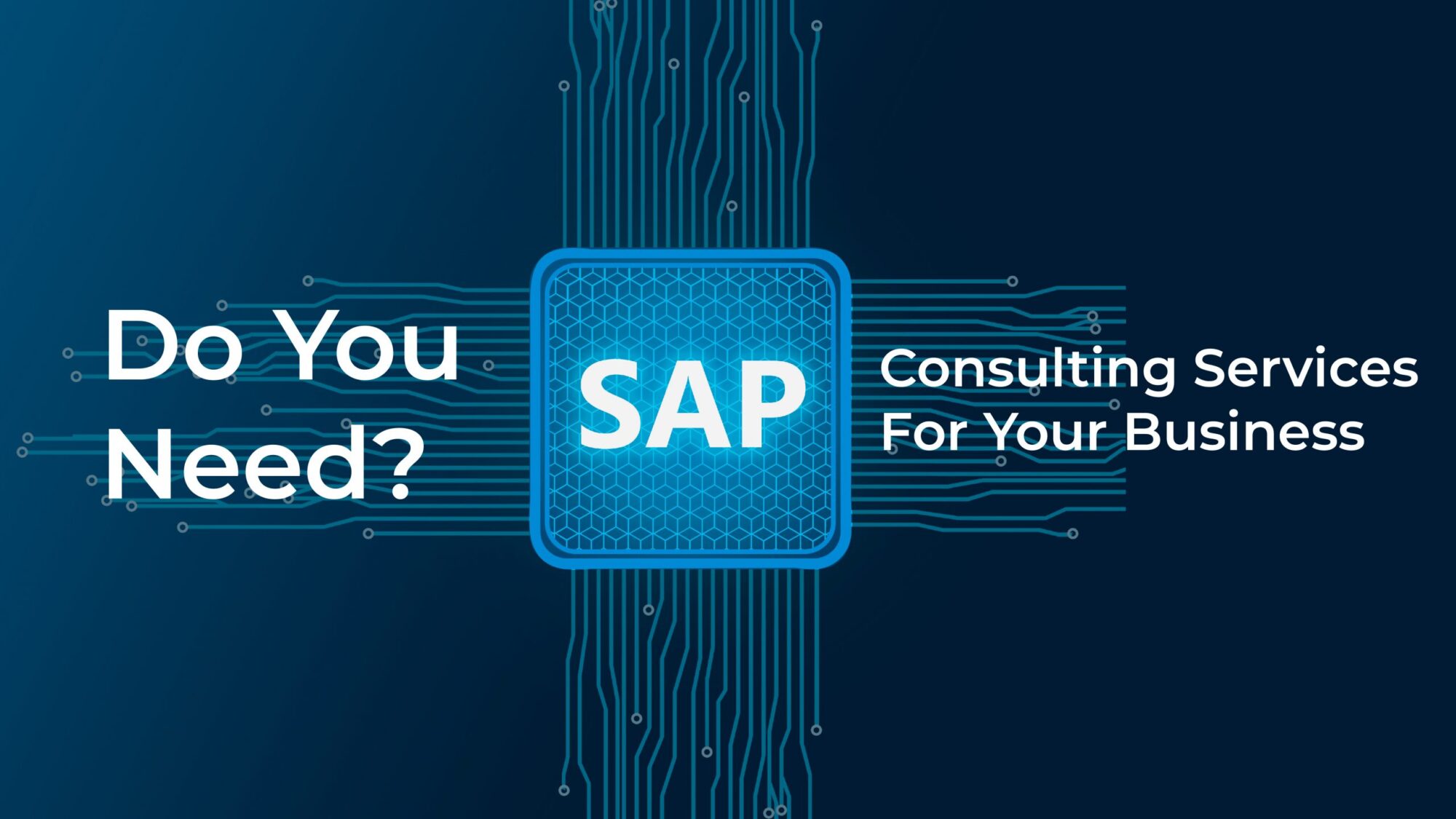In the current fast-paced and competitive business world, organizations need to remain agile, efficient, and responsive to market needs. Enterprise Resource Planning (ERP) solutions such as SAP have become vital tools for controlling business operations across departments, ranging from finance and supply chain management to human resources and customer relations. Nonetheless, successful SAP implementation calls for proper planning, specialized expertise, and insight into your business’s specific requirements.
In this blog, we’ll explore the key reasons why your business needs SAP implementation services, highlighting the benefits, challenges, and best practices to ensure a seamless and successful SAP deployment.
1. Unlock Business Growth with SAP Implementation: Key Advantages for Your Company
SAP ERP solutions are meant to enhance operational effectiveness and drive business growth. SAP implementation allows companies to dissolve silos and merge processes across departments. When every aspect of your business, including finance, inventory, sales, and HR, is operating off the same platform, it encourages collaboration, improved communication, and quicker decision-making.
In addition, SAP’s real-time data features guarantee that your team is equipped with current information for strategic decision-making, enhancing business results, and promoting long-term growth.
2. Streamline Operations with SAP ERP: Increasing Efficiency Throughout Your Organization
One of the main driving factors for adopting ERP is efficiency. SAP ERP has an integrated suite of modules meant to streamline processes and do away with duplications. Having a single system to perform operations such as procurement, inventory control, production planning, and financial reporting enables businesses to cut out manual labour, increase accuracy, and provide a smooth process.
With SAP, companies can automate the entire process, from order processing to invoicing and payroll, saving precious time and resources. This streamlined process results in quicker workflows, better data, and fewer errors, enabling companies to concentrate on innovation and customer satisfaction instead of operating fragmented systems.
3. How SAP Implementation Increases Data Accuracy and Informed Decision-Making
One of the greatest benefits of SAP implementation is data accuracy.With most traditional systems, data could be siloed, inaccurate, or stale, while SAP brings data together on a single platform, allowing it to be accessed and analyzed by stakeholders more easily.
This transparency of data gives decision-makers at all organizational levels the capability to make educated, strategic decisions. Managers can, for instance, view levels of inventory in real-time, have a clearer picture of cash flow, and monitor performance measures with ease. The enhanced precision of data not only aids better decision-making but also in forecasting, allocating resources, and budgeting.
4. Seamless SAP Integration: Uniting Systems to Enhance Business Performance
Most companies use a few software applications to conduct different parts of their operations. Yet, these applications work independently, leading to inefficiencies, redundant effort, and data silos. SAP addresses this issue by providing smooth integration with current systems, allowing companies to bring together different tools into one central platform.
With SAP integration, companies can avoid manual data entry and reduce the risk of errors caused by disparate systems. Whether integrating SAP with customer relationship management (CRM), supply chain management (SCM), or third-party applications, the outcome is a unified, integrated system that drives enhanced performance and lowers operational costs.
5. Why SAP Implementation is Important for Scaling Your Business Operations
As your business expands, so do the intricacies of keeping your operations in check. With growing product offerings, customer bases, and markets, it becomes more challenging to keep things under control without a solid system to support it. SAP is built to grow with your business, offering the flexibility and support necessary to meet rising demands and operational complexity.
SAP ERP is easily adjustable to support new business processes, customers, and regulatory requirements. SAP offers cloud and on-premises choices, allowing businesses to expand their operations in terms of size, whether to enter new markets, enhance output capacities, or provide support for higher transaction volumes.
With SAP, your business will remain at the cutting edge, evolving with changing market trends without fear of outgrowing your ERP system.
6. Cost Reduction with SAP Implementation: Lowering Operating Expenses in the Long Term
Though the initial investment in SAP implementation services may appear high, the long-term gains make it worthwhile many times over. SAP ERP assists companies in lowering operating expenses by minimizing redundant processes, automating tasks, and streamlining efficiency. Decision-makers, with access to the right information at the right time, can minimize waste, lower potential errors, and make the most of available resources.
Moreover, SAP’s capacity to streamline supply chain management, enhance procurement processes, and manage inventory better can result in considerable cost savings. By reducing manual efforts and consolidating your operations into one system, companies can get a better return on investment (ROI) in the long run.
7. Customer Experience Enhancement through SAP Implementation Services
A key to the success of any business is offering excellent customer service. SAP has customer relationship management (CRM) capabilities that enable businesses to deeply understand customer attitudes, tastes, and buying behavior. With visibility into a 360-degree profile of every customer, businesses are better positioned to offer more targeted and proactive services.
With SAP, companies can monitor customer interactions across various touchpoints, handle sales leads, and respond more quickly to customer inquiries or problems. This improved customer experience translates into increased customer satisfaction, better retention rates, and more opportunities for upselling and cross-selling.
8. Tailoring SAP Solutions: Customizing ERP to Fit Your Unique Business Needs
Each business has its challenges, procedures, and objectives, and it is unlikely that an off-the-shelf ERP system will be perfect for every business.
Whether the need is for customized dashboards, customized reports, or customized process flows, the flexibility of SAP makes it a robust tool in the hands of businesses operating in various sectors. With the support of seasoned SAP implementation services, businesses can get the system set up to bring maximum efficiency and cater to the specific needs of their operations.
9. Beating SAP Implementation Challenges: Professional Services’ Key to Success
SAP implementation can be difficult and time-consuming. Most businesses encounter technical challenges, data migration problems, and employee acceptance issues. Nevertheless, collaborating with qualified SAP implementation experts can assist in avoiding these problems.
SAP consultants and professionals bring deep knowledge of best practices and industry standards, ensuring that your SAP deployment is executed efficiently and effectively. They can also guide your team through the transition, providing training and support to help users embrace the new system. With the right experts, your SAP implementation can be completed on time, within budget, and with minimal disruption to your business operations.
10. Maximize ROI with Expert SAP Implementation: Why the Right Partner Is Important
Your SAP implementation project’s success depends significantly on the team you are working with. Selecting a competent SAP implementation partner is the key to optimizing your return on investment (ROI). An experienced SAP partner will not only possess technical competence but also be knowledgeable about your business and industry issues.
By choosing a partner with a successful history in SAP implementation, you can be assured that the system is properly configured, tailored to your requirements, and fine-tuned for performance. A seasoned SAP implementation partner will also offer post-implementation support to make sure that your system keeps on yielding value as your business changes.
Conclusion:
SAP implementation services provide a one-stop solution for companies seeking to streamline operations, enhance data accuracy, deliver superior customer experience, and grow at scale. Although the effort and investment in initial implementation can be substantial, the long-term returns in terms of cost savings, improved decision-making, and business growth make it a necessary investment for any visionary company.
With the help of seasoned SAP implementation experts, companies can navigate the challenges of ERP rollout and implement a streamlined, successful transition to an integrated, optimized system. If you have a small company that needs to expand or a large corporation requiring scalability, SAP offers the functionality and flexibility required to remain agile in the modern digital economy.



































